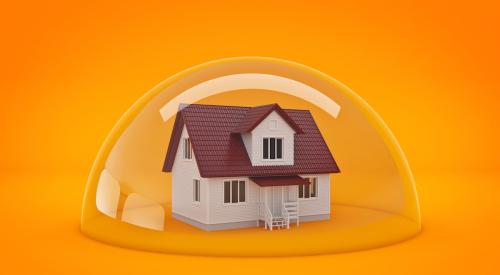There's a debate raging among U.S. economists as to whether the rapid run-up in housing prices in many markets across the country constitutes an investment bubble that could soon burst, with long-range repercussions on builders' ability to sell new homes at prices that cover costs and allow for an adequate profit margin. Here's a capsule look at both sides.
Pro-bubble: HSBC Securities economist Ian Morris recently published a 47-page analysis, "The U.S. Housing Bubble: The case for a home-brewed hangover," that argues expectations of future house price appreciation now are "spectacularly and unrealistically high," a reflection of the longest and strongest real house price boom in more than five decades. "Perceived risk of buying a house has dropped to all-time lows," Morris writes, "despite leverage at all-time highs."
House prices relative to income, rent, replacement cost and home equity have set new records, Morris writes. "Twenty states that account for half the population look shaky...all the more risky given housing supply has surged, with the vacancy rate at its highest in over 40 years."
U.S. house prices are "bubbly," Morris contends: "Prices are 10 percent to 20 percent too high and can overshoot on the way down...If the Fed is in tightening mode, the day of reckoning tends to come sooner. We think the party stops by mid-2005."
Anti-bubble: A recent report, "Are Home Prices the Next Bubble?" by Jonathan McCarthy, senior economist, and Richard Peach, vice president, of the Federal Reserve Bank of New York, concludes there's no imminent danger of a collapse in housing prices that would harm the U.S. economy.
They find "very little evidence" of a national home price bubble. "Rather," writes McCarthy, "it appears home prices have risen in line with increases in personal income and declines in nominal interest rates. Moreover, expectations of rapid price appreciation do not appear to be a major factor behind the strong hot market."
Counterpoint: However, says economist Raymond Sabat of EconomicBriefing.com, the two Federal Reserve economists made "a glaring error" by failing to "consider past declining interest rates as a cause of the bubble." McCarthy and Peach ignore "the structural components of the current housing finance market that will make any price decline even worse,'" Sabat writes. His analysis is online at www.economicbriefing.com/sabat/fedbubble.html.
Our take: Watch the number of pure investors (real estate speculators) in your market. Speculation creates artificial demand that can drive pricing bubbles. Housing markets are local, not national. Some markets may be bubbly. But it's hard to see prices falling precipitously across the country as long as job creation and underlying demand remain strong.












